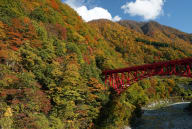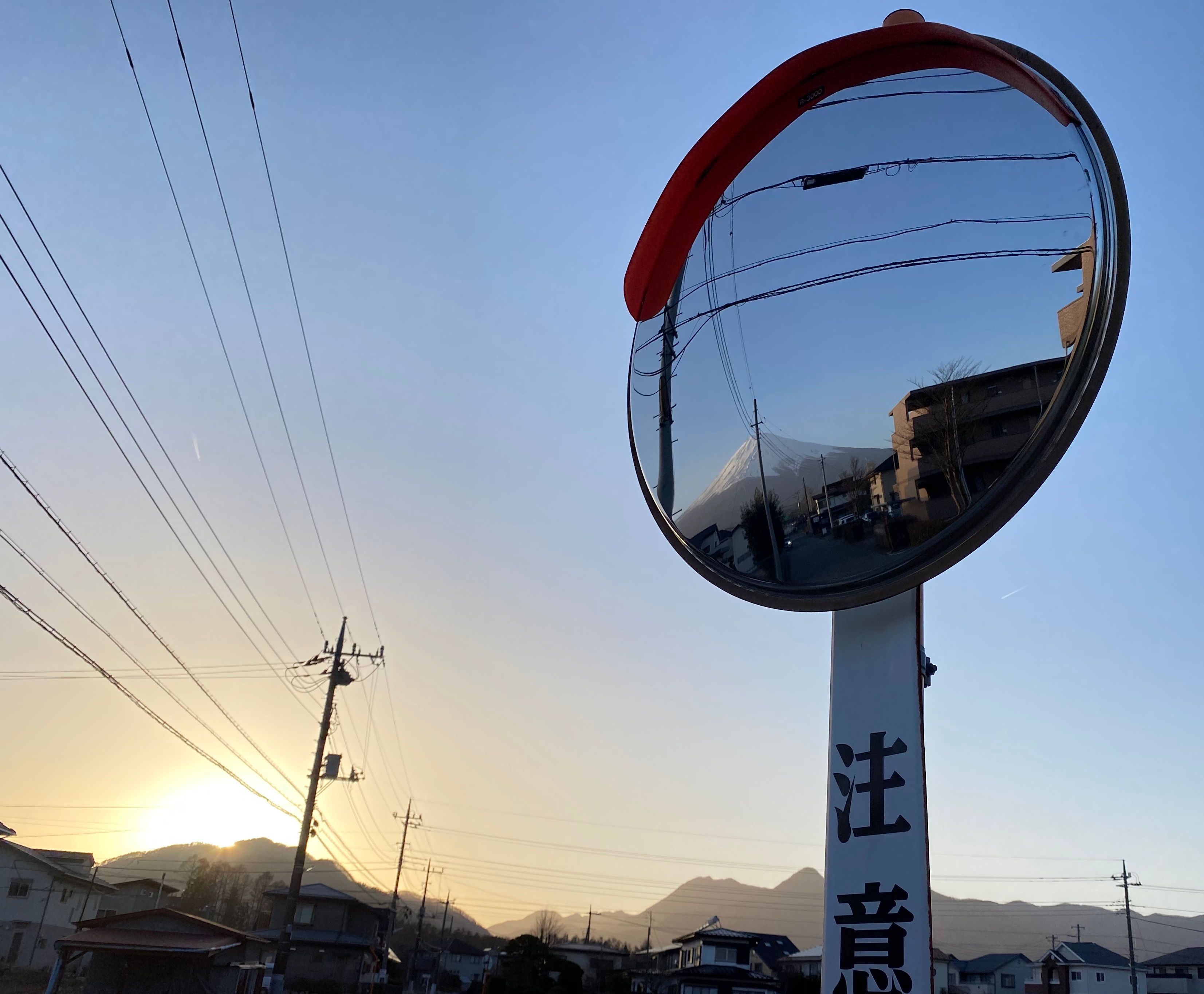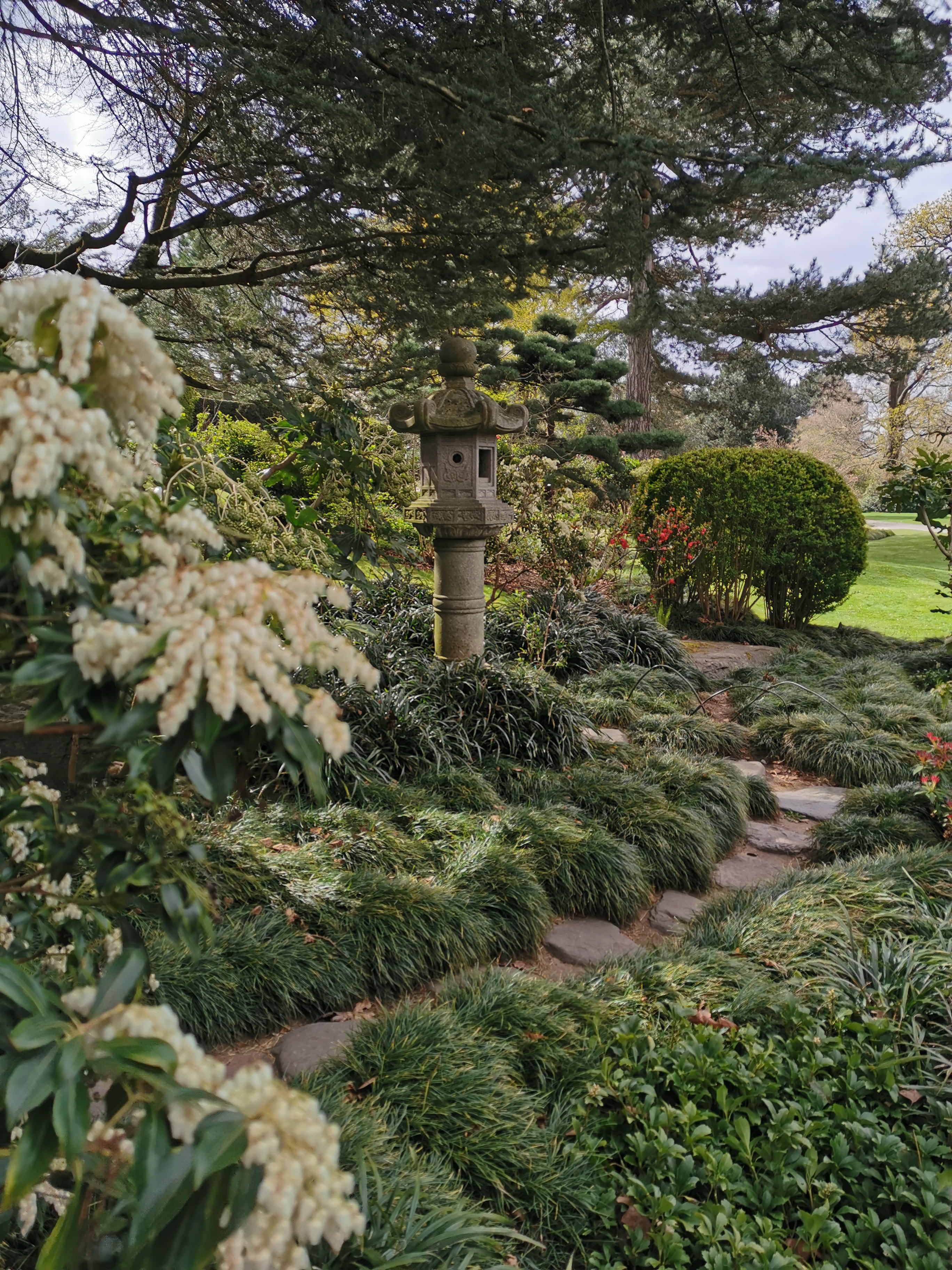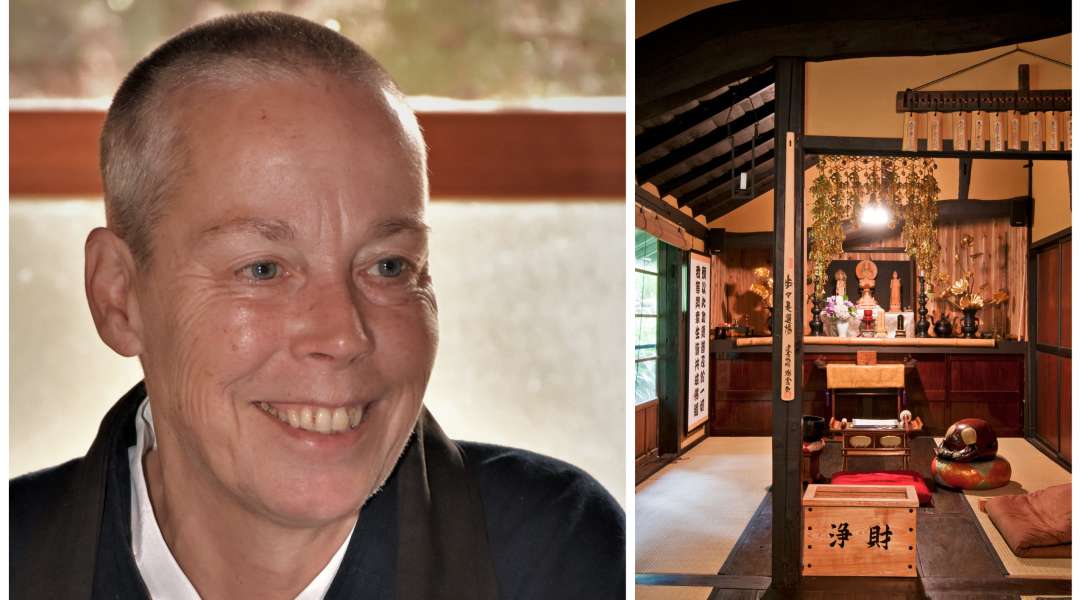
Now and Zen in Nagano
Dorothee Eshin Takatsu, originally from Germany, is an ordained Zen Priest in the Rinzai Tradition. In 2004 she established her Zen Retreat Center, Horakuan, in the mountains of Nagano Prefecture and she now offers Zen retreats with a creative touch to Japanese and foreign visitors. We talked about how she became a monk in Japan and what kind of experiences await visitors to Horakuan.

How did you end up working and living in Japan and what was it like?
In 1980, Japanese studies and research about lathe workers in medieval Japan, their technique and fascinating history, brought me to Japan with a one year scholarship from DAAD, the German Academic Exchange Service. At the time I was 26 years old and I studied for an MA in Japanese Studies.
At the beginning of my stay in Japan a friend asked me casually: would you like to meet a Japanese monk? Well sure, I thought, studying ethnology made me curious for any unusual experiences! Long story short, we decided to get together, but first I returned to Germany to finish my studies. Two years later, after graduation, we got married in Germany: a Zen priest and a Protestant in a Protestant church. Then again in Japan where we had a Buddhist wedding in Kyoto, presided by the Roshi of Shogen-ji from Gifu prefecture where my husband had trained as a monk.

Our life in Japan started in 1982, almost 40 years ago; this was pre fax, pre email, pre internet! So a letter sent home to Germany by ‘snail mail’ took one week and even if replied to immediately, it would be at least two weeks before receiving an answer. On the other hand, who knows now the longing for the sound of the postman’s arrival and the thrill to discover a lightweight airmail envelope with a blue and red border? To call home in Germany was outrageously expensive, a rare treat for birthdays or Christmas. This means that I was really out of reach for my family and friends.
We lived in a small Zen temple in the deep countryside of Japan, behind Shogen-ji. This temple was so ‘welcoming’ that it did not even have a futon to sleep on. Things improved when we moved to Nagano prefecture where my husband eventually took over the family temple and where we still live today.
Over time we became a family of four: my husband, a Zen priest, my older son, now a DJ Zen priest, my younger son, now a contemporary dancer with some experience of Zen training at a monastery in Kamakura, and myself, also ordained in Rinzai Zen with five years of experience of Zen training at Shogen-ji.

What led to you becoming a priest of the Rinzai sect of Zen Buddhism?
Around 20 years ago I spontaneously quit my university teaching job. Until then I had an ordinary family life, except that I lived in a temple. However, I had always felt a strong spiritual longing and I decided that now was the time to “make nails with heads” as we say in Germany, a decision that nobody could follow: why would I give up a well-paid job, high status (very important in Japan), a more than average number of holidays and a nice bonus twice a year! I have to admit it felt like falling into the black abyss because I had no idea or plan about what to do, but nevertheless, I needed to go ahead with it.
By that time, however, I had already started my Zen Buddhist training, and I had taken the Buddhist vows in 2002. Why did I do that? As a teenager I came across a book about Asian thought. It blew me away because it was so different from anything I was brought up with. It spoke about the Tao, the Way, which is everything but the strong individuality of the West. I was hooked and it triggered my interest in Eastern philosophy, spirituality and eventually Zen.
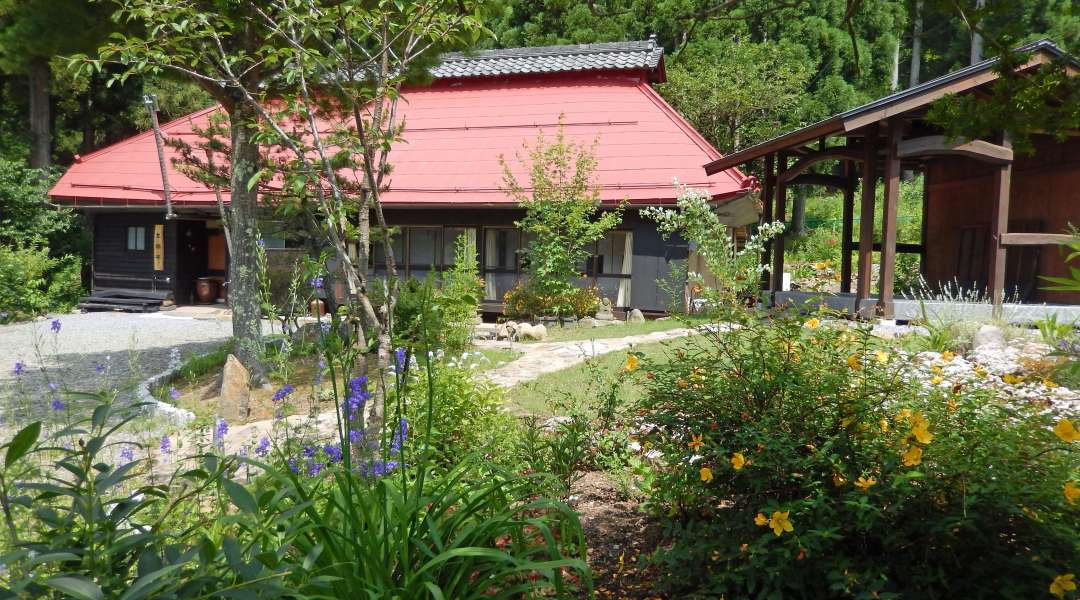
What inspired you to establish Horakuan in a former traditional farmhouse in Nagano prefecture?
Having quit my job I thought I should look for a place of my own where I could pursue my spiritual training and practice, a place where I could do what I wanted to do. I found an old farm house in the mountains of Nagano Prefecture, a quiet oasis surrounded by some land and enclosed in woods. I called this place, which was my temple-to-be Horakuan.
Horakuan is written with the character for ‘abundance’, ‘ease’ (but it is also found in ‘paradise’) and the character for ‘hermitage’ or small temple.
While renovating the over 100 years old house more or less all by myself, I regularly went to meditation retreats (sesshin) at Shogen-ji for which one needs a really strong commitment!
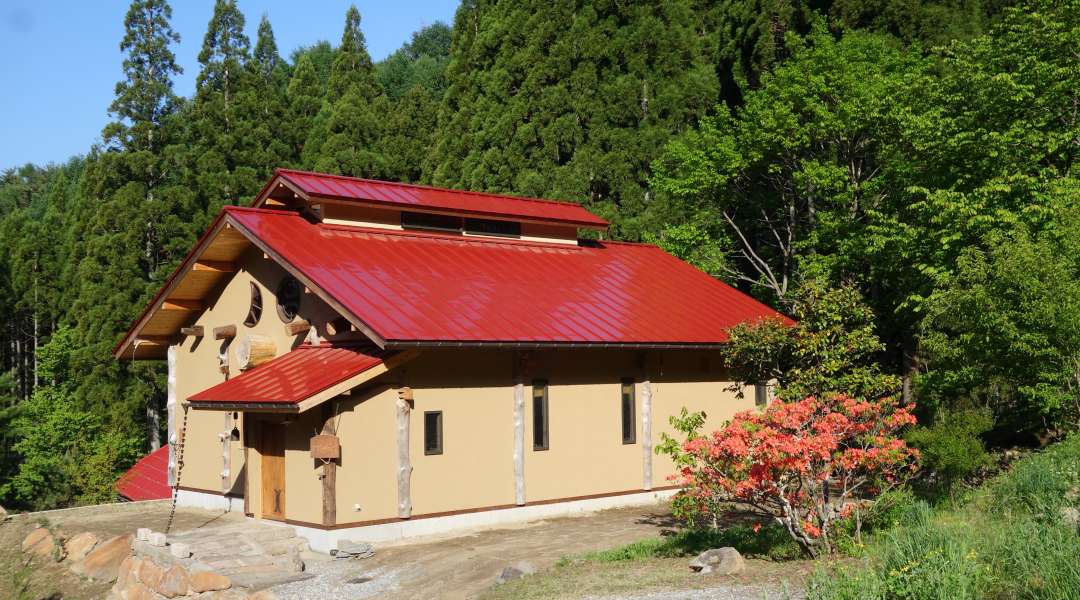
You have attended intense group meditation retreats at one of Japan’s strictest Zen temples. How did you find them?
It is not easy to get admitted to join the monastery as an outsider and it certainly is not for the fainthearted. Therefore, having been accepted, I promised to myself not to quit because it was too hard but only when I strongly felt that the right timing had come. To be honest, every time a sesshin came up I had panic attacks, still every time the pull to go was stronger. I felt: you have to do it or you lose out on your way.
After several years of attending sesshin the moment came when I could say that I was ready to put into practice what I experienced at the Rinzai Zen monastery. The strictness of the monastery life has its meaning in many ways, but certainly is not something to copy outside the monastery. By that time my temple, Horakuan, was ready to accept overnight guests and I started offering various retreats for foreigners.
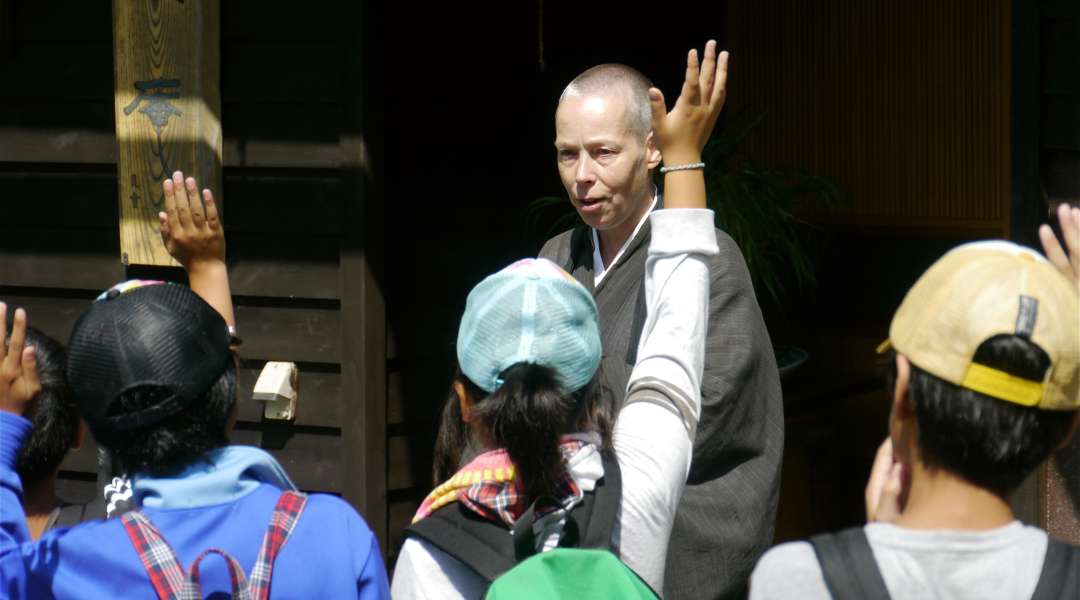
What can visitors expect coming to Horakuan? Are there any activities they can join?
Horakuan is a quiet place surrounded by beautiful nature that invites spiritual practice and spending quiet quality time. It is located in Nagano Prefecture, a region that is blessed with beautiful mountains. Around Horakuan there are many hiking trails and there are many other options to enjoy nature.
However, Horakuan is a retreat center and the main activities to join here are retreats. Of course the experiences at Shogen-ji flow into the schedule of the retreats, but here I include parts that I found lacking in the monastery, like practices for Body (Yoga, breath meditation), Mind (talks on how to put Zen teachings into practice) and Soul (various forms of meditation inside and outside) to have a holistic approach that you don’t get in traditional Zen training.

The word of the month is ‘tsundoku’ (積ん読) meaning ‘letting books pile up at home in the hopes of reading them later’. What book would you recommend to people who are planning to join their first Zen retreat?
Actually, the fundamental teaching in Zen is 'transmission outside the scriptures', meaning Zen can not be understood through books or sutras, it is all about personal experience. Nevertheless there are countless books and it does not mean reading is meaningless. So, two helpful suggestions: Michael A. Singer: 'The Untethered Soul', or specifically for introducing Zen: 'Zen Mind, Beginner's Mind' by Shunryu Suzuki.
What kind of meditation experiences would you recommend to someone who wants to try it for the first time?
Anybody is welcome in Horakuan, especially participants new to Zen. For the time being it has mainly been foreigners who join my retreats though I would like Japanese people to come too. But the concept of a retreat, meaning spending time to reflect on oneself and on a spiritual path, is still rather alien to the Japanese way of thinking and against Japanese cultural values, which are more focused on the group instead of the individual.
In addition, I also offer Silence Retreats, Meditation & Creativity Retreats and various one-day workshops. There are several options to choose from which should make it easy for first-timers to sink into Zen practice. I also always include different creative projects as an original expression of ourselves, like painting a spiritual keyword or doing a mandala with various materials found in nature or meditative activities like slow drawing or embroidery etc.

Now, while Corona related restrictions are still in place, I see this situation also as a chance and an opportunity to refocus on ourselves and our way of living. It is a chance to develop or deepen a mindfulness practice which can help us dealing with all these new challenges. To support this effort, I also offer a one week ‘ZenLife Challenge’ program, that everybody can do from their homes.
For me, one of the biggest ‘supporters’ especially now is Nature, we can learn from nature, it nurtures us and our health, mentally and spiritually, and it is there for everybody! Let’s enjoy the sunshine and warm weather of spring!
Don't forget to check out Horakuan's website and Instgram to learn more about their retreats!









































